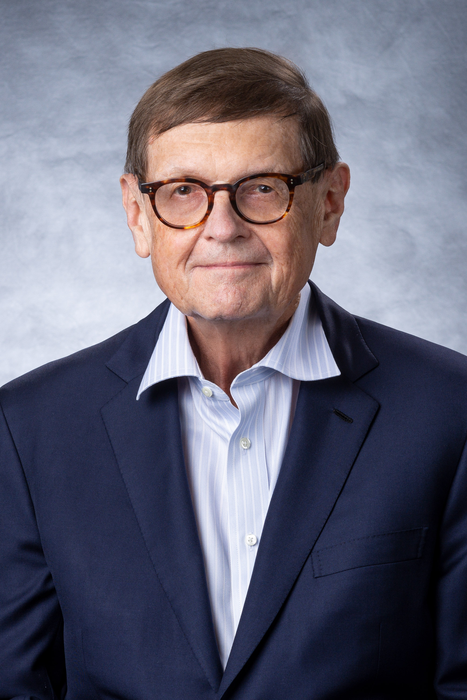HOUSTON ― Neal G. Copeland, Ph.D., and Nancy A. Jenkins, Ph.D., both professors of Genetics at The University of Texas MD Anderson Cancer Center, have been elected to the 2022 class of Fellows of the American Association for Cancer Research (AACR) Academy.

Credit: MD Anderson Cancer Center
HOUSTON ― Neal G. Copeland, Ph.D., and Nancy A. Jenkins, Ph.D., both professors of Genetics at The University of Texas MD Anderson Cancer Center, have been elected to the 2022 class of Fellows of the American Association for Cancer Research (AACR) Academy.
The husband-and-wife geneticists, who co-led a joint laboratory for nearly 40 years, are recognized for their contributions to cancer genetics and for innovations to create mouse models of cancer and a variety of other human diseases.
The mission of the AACR Academy is to honor distinguished scientists whose contributions have propelled significant innovation and progress against cancer. This year’s class of 33 inductees joins 256 existing fellows in working collectively to advance the mission of the AACR.
Copeland and Jenkins join 10 additional MD Anderson fellows, including current members James P. Allison, Ph.D., Ronald A. DePinho, M.D., V. Craig Jordan, Ph.D., Margaret L. Kripke, Ph.D., Guillermina (Gigi) Lozano, Ph.D., and Louise C. Strong, M.D. Former members, now deceased, include Isaiah J. Fidler, D.V.M., Ph.D., Emil J Freireich, M.D., Waun Ki Hong, M.D., and John Mendelsohn, M.D.
“We are so pleased to see Neal and Nancy recognized for their lasting impacts in the field of cancer research and human health,” said Peter WT Pisters, M.D., president of MD Anderson. “These remarkable scientists pioneered many of the approaches still used in cancer biology today, and we applaud their selection as part of this group of exceptional fellows.”
Copeland and Jenkins together developed many of the earliest techniques to model human cancer in mice using insertional mutations. They were among the first to show that the Sleeping Beauty transposon could be mobilized within cells to insert itself within other genes and drive cancer formation. This technique enabled researchers to identify many of the genes and signaling pathways that we now know drive cancer development.
Using the Sleeping Beauty system, they modeled 16 different types of cancer affecting 10 organ systems and validated many of the cancer-related genes discovered through this work. They continue to collaborate in defining genes involved in the progression and metastasis of pancreatic cancer using laser-capture microdissection to isolate specific cancerous lesions followed by whole genome amplification and DNA sequencing.
They also developed a liquid-phase, capture-based sequencing and bioinformatics pipeline to facilitate the sequencing of transposon insertion sites from single tumor cells, making it possible to study tumor evolution at the single-cell level and to unambiguously identify cooperating cancer genes.
“Neal and Nancy helped to establish foundational approaches to cancer research that continue to yield new insights,” said Giulio F. Draetta, M.D., Ph.D., chief scientific officer. “Their work epitomizes our efforts to pursue impactful discovery research to drive cancer breakthroughs, and we are proud to have them as a part of our MD Anderson research community.”
Copeland received his bachelor’s degree in biology and a doctoral degree in biochemistry from the University of Utah.
Jenkins received her bachelor’s degree in chemistry from Sweet Briar College. She earned a master’s degree in microbiology and a doctoral degree in molecular and cellular biology from Indiana University.
The couple met during their postdoctoral fellowship at Dana-Farber Cancer Institute, after which they started a laboratory together at the University of Cincinnati. They spent 21 years together leading research at the National Cancer Institute, followed by five years at the Institute of Molecular and Cell Biology in Singapore. They joined the Houston Methodist Research Institute in 2011 and MD Anderson in 2017.
Copeland and Jenkins each are members of the National Academy of Sciences and The Academy of Medicine, Engineering and Science of Texas. Among numerous honors, they were awarded the 2020 Prince Hitachi Prize for Comparative Oncology. They have co-authored more than 800 peer-reviewed scientific publications.
– 30 –




